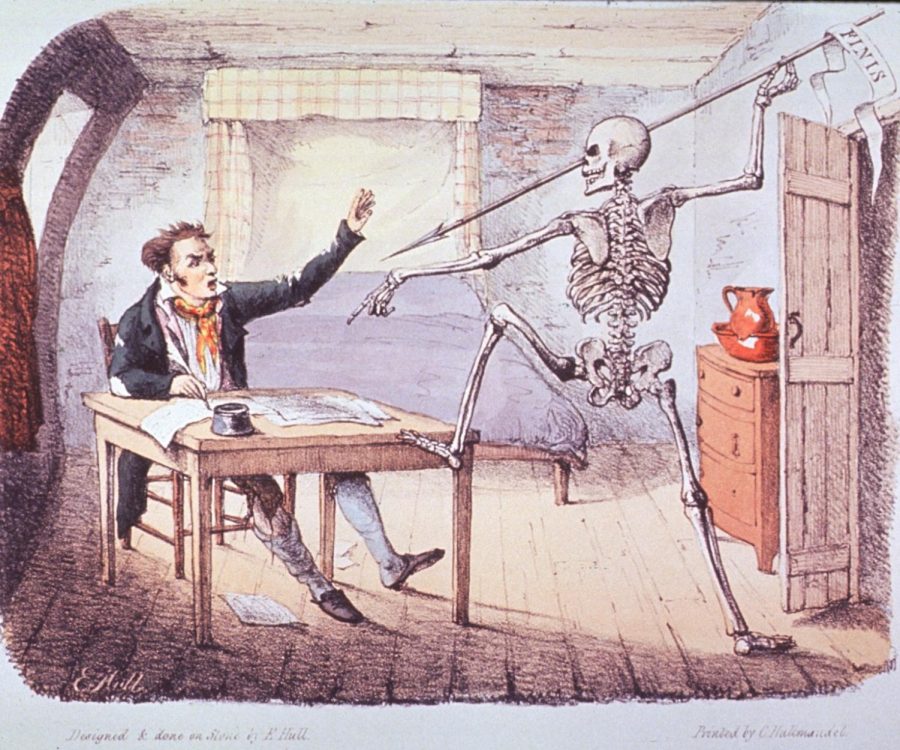Death of the Author: What it Is and Why It’s Important
What is the “death of the author?”
Typically, when this phrase is used, it does not mean the author of a work has actually died, rather their work has become an entity of its own that is now unaffected by the author’s life, intentions, or comments on the work.
I have observed two main notable instances in which the death of the author occurs, though they may happen under different circumstances. The first of which is when the author of a work happens to be a not-so-great person and so the work is looked at separately from them and the author is therefore rendered “dead” to the work.
Of course, this may also happen if the author is literally dead, which happens in lots of educational settings. Most, if not all, of classical literature was written at a time where people were racist, misogynistic, or their culture would be just unacceptable if practiced here today.
That being said, separating a work from the author is one thing, but keeping it within its cultural context is important when dealing with texts that are more problematic today than they may have seemed at the time they were written.
A good current example of this, where the author is not yet actually dead, is Sherman Alexie, who has written various novels, one of which I am currently reading for a class here at Millikin.
“The Absolutely True Diary of a Part-Time Indian” has already been banned in some schools for various themes and elements contained within the book itself, but a couple years ago, the author was accused of sexual misconduct/harassment.
My professor informed our class that because of this controversy surrounding the author, they were hesitant to include it on the class’s syllabus. But the book contains a lot of hard truths about other topics and is still a relevant addition to our course and so they kept it in, with open discussion of the author’s faults, so we weren’t ignoring them.
The second instance of “death of the author” is when the fandom kills them.
Yes, you can absolutely “kill” an author. The most obvious instance where I have seen this occur is with J. K. Rowling and the “Harry Potter” universe.
This is the only instance in which I watched this happen in real time, over the course of several years.
The break happened for various reasons and has ultimately ended with fans of the series effectively divorcing Rowling. It started with her making various comments about the series that were not included within any of the books themselves. She tried to include representation where there wasn’t any. She would take to Twitter and tack on canon information that was presented nowhere in the text itself.
Then she wrote “The Cursed Child.”
I personally give her a pass here because, like with Shakespeare, the work was written as a play and is therefore meant to be seen, not read. I also actually had the fortune of going to see this play at the Palace Theatre in London and it was honestly the most magical thing I’ve ever seen.
But the more Rowling tries to build on this world from the outside, the more fans of her work are rejecting it and wishing she would just leave well enough alone.
At this point in time, “Harry Potter” belongs more to the audience than it does to her, and she cannot change their minds about what happens within or between those pages unless they let her.
So, should we kill the author? Does their intent actually matter? Is it ethical to read works that were written by less-than-ideal people? What if they are no longer receiving any benefit from their works being read? Maybe it is better to just avoid them altogether, but I don’t think that’s the case.
I have thought about this for a while, and I think I will use the writer’s own metaphor against them. Books are like children. You can birth them, give life to them, and shape their existence to a point—but eventually they do speak for themselves.
Some authors, such as J. K. Rowling, may be helicopter parents who cannot let their children go, but if the readers respect a work enough, they come to see that they are not their parents. Some aspects of them will undoubtedly be similar or influenced because that was the environment in which they came to be, but that doesn’t mean it cannot have its own unique impact on the world.
What’s more, I think not reading a book solely on the premise that you do not agree with the author is a form of censorship you are enforcing on yourself.
If you are aware enough to acknowledge the faults of an author, then it should not be too much of an ordeal to distinguish what you do and do not like about their work. If it were a conversation, people shouldn’t be so close-minded to assume everything said by someone they dislike is absolutely false.
Broken clocks aside, different-minded people may have valuable insights into different aspects of life; not just the aspects where you disagree with them. They may be a bigot, but that doesn’t mean you should also be forced to be bigoted.
If a work can stand on its own, without the author, it has become its own entity.
Don’t let questionable actions or behavior on the part of an author impede you from enjoying a work. Acknowledge their shortcomings without looking the other way, but don’t immediately discount the possible merits of their work.
Books can be interpreted or used in many different ways depending on the reader and their purpose for consuming the work. Don’t let ignorant people stop you from gaining knowledge.
So, in other words, death to the author.

English Writing Major with emphasis on Creative and Professional Writing
Class of 2022

